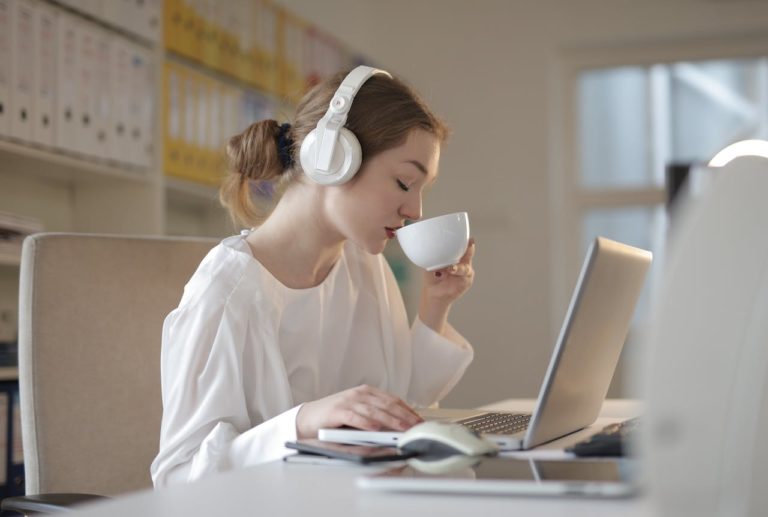Yeah, yeah…coffee can pick you up, and give you a boost of energy to get through your work day at home, but did you know that when sh** hits the fan… that there’s another hot, beverage that can give you sweet kisses, and whisper sweet nothings in your ear to calm you down from cursing out everyone in that teams meeting?
Yeah it’s tea. Tea is a popular beverage enjoyed by many people around the world for its soothing and calming effects. But we’re sure you knew that already. So if you’re feeling a extra stressed from that crazy work project, or juggling too much at once between work & your personal life, here are 15 teas that are perfect for relieving stress and anxiety, as well as their benefits.
- Chamomile tea – Chamomile tea is perhaps the most well-known tea for reducing stress and anxiety. Chamomile tea contains apigenin, an antioxidant that promotes relaxation and sleep.
- Lavender tea – Lavender is known for its calming effects, and lavender tea is no exception. It can help reduce anxiety and promote relaxation.
- Lemon balm tea – Lemon balm has been used for centuries to treat anxiety and promote relaxation. It contains rosmarinic acid, which has been found to reduce stress.
- Valerian root tea – Valerian root has been used for centuries as a natural remedy for anxiety and insomnia. It works by increasing GABA levels in the brain, which promotes relaxation and reduces anxiety.
- Passionflower tea – Passionflower has been found to have a calming effect on the nervous system, making it a great tea for reducing anxiety.
- Kava tea – Kava is a plant native to the South Pacific, where it has been used for centuries for its calming effects. It works by increasing GABA levels in the brain, similar to valerian root.
- Ashwagandha tea – Ashwagandha is an adaptogen herb that has been found to reduce stress and anxiety by regulating cortisol levels in the body.
- Holy basil tea – Holy basil, also known as tulsi, is an adaptogen herb that has been found to reduce stress and anxiety. It works by regulating cortisol levels in the body.
- Green tea – Green tea contains L-theanine, an amino acid that reduces stress &promotes relaxation. It has also been found to improve brain function and reduce the risk of depression. Yay.
- Black tea – Black tea contains theanine and caffeine, which work together to promote relaxation and reduce stress. Opt for a decaf version if you don’t want to overdo it with the caffeine, or if you choose to sip this on a late night working from home.
- Oolong tea – Oolong tea contains both caffeine and L-theanine, making it a great tea for reducing stress and improving mood. On top of that, it’s even relaxing to say. Drink the oooolllooongggg, enjoy the ooollooonnngg. Ah, don’t you feel better already?
- Peppermint tea – Peppermint tea has a calming effect on the body, making it a great tea for reducing stress and anxiety! Also perfect for the holidays or a cheerful pick me up!
- Rose tea – Rose tea has a calming effect on the nervous system, making it a great tea for reducing stress and anxiety. It also has anti-inflammatory properties.
- Hibiscus tea – Hibiscus tea contains antioxidants that help reduce inflammation and promote relaxation. Careful not to drink too much or you might get sleepy. Although..that’s the epitome of relaxation isn’t it?
- Ginger tea – Ginger tea has been found to reduce inflammation and promote relaxation, making it a great tea for reducing stress and anxiety.
These 15 teas can be a great addition to your stressful days if you’re looking to reduce stress and anxiety. Whether you prefer chamomile, lavender, or green tea, there’s a tea out there for everyone! You can even mix and match for a special blend that fits your taste! So sit back, relax, and enjoy a cup of tea!
**It’s important to note that while these teas can be helpful in reducing stress and anxiety, they should not be used as a substitute for professional medical treatment. If you’re experiencing severe or chronic stress and anxiety, it’s important to seek help from a healthcare professional. Additionally, it’s important to be mindful of any potential side effects or interactions with medications before incorporating these teas into your routine. As with any dietary changes, it’s always best to consult with your doctor before making significant changes to your diet. So, while these teas can certainly be a great addition to your self-care routine, it’s important to prioritize your overall health and wellbeing by seeking professional help when needed and being mindful of potential risks.


